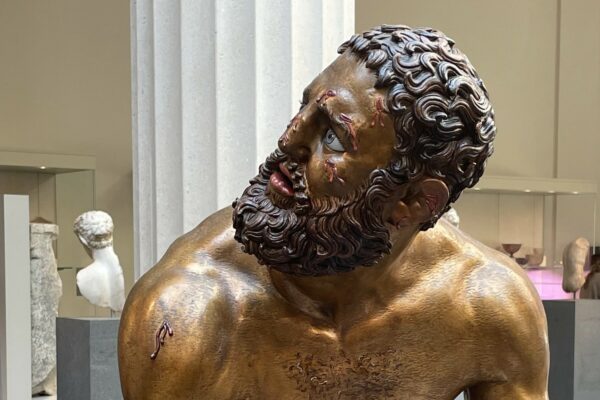
In 330 CE, the Emperor Constantine the Great moved the official capital of the Roman Empire from Rome to his renovated metropolis Constantinople, and a new era in the Mediterranean world began. While Rome’s glory would fade under the weight of mismanagement and foreign invasions, the Eastern Empire would rise to new heights of glory, wealth, and power, only eventually to fall themselves to the same forces that had crippled their Western ancestors. This fascinating period of transition would be the setting for the rise of one of the most influential religions the world has ever seen: Christianity.
CLAS-C 386 explores the history of Ancient Greece, with a particular focus on the establishment and florescence of the Byzantine Empire (c. 200-800 CE). Drawing on literary and historical evidence, the course addresses fascinating topics, such as:
- the spread of Greek culture, from Athens and Sparta, to Alexander the Great’s conquests, to the Hellenistic kingdoms, to eventually its own empire
- the rise of Constantinople from village to empire
- the transfer of power from a base centered in Europe to one centered in the Near East
- the establishment of Christianity under Constantine
- and more!!
Reading a selection of primary sources allows students to hear the ancient Greeks and Romans in their own words, and encourages critical analysis of historical sources. Most importantly, you will learn to think critically about important questions: How was ancient society organized? How do we interpret different types of evidence about the past? How do ancient cultures continue to shape the world we inhabit today?
Want to explore how this course connects with the modern world? Check out our blog posts inspired by this course.
Fun Facts:
- combined with HIST-C 386
- offered in person
- 3 credits
- can be applied to the History Minor and Classical Studies Minor
Coming Next: Spring 2026
Recent Offerings
SPRING 2024
-
- MW 12:00–1:15 PM (Dr. Andy Findley)


